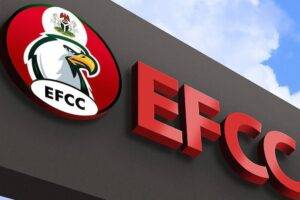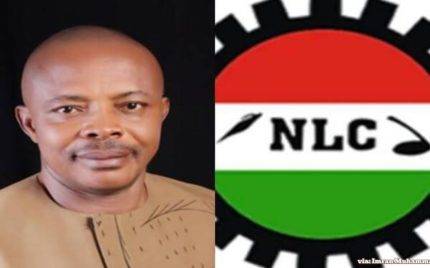The Nigeria Labour Congress (NLC) is considering a formal call for the federal government to re-evaluate the national minimum wage due to the escalating cost of living across the nation. Rising inflation, coupled with increased costs in basic commodities and services, has put significant pressure on the purchasing power of Nigerian workers, particularly those in essential sectors like healthcare and education. As workers’ real incomes are increasingly eroded, there is mounting urgency for a revision to ensure their wages align with the current economic realities.
At the 8th Quadrennial Delegates Conference of the National Association of Nigeria Nurses and Midwives (NANNM), NLC President Joe Ajaero discussed the pressing need for an updated wage structure. Ajaero emphasized that organized labor will advocate persistently to ensure that the federal government honors its obligations, particularly regarding the reactivation of public refineries. These moves, he argued, are integral to alleviating the financial strain on the nation’s workforce and securing fair economic conditions.
Ajaero Highlights Refineries’ Role in Reducing Economic Pressure
President Ajaero underscored the urgent need to recommission the Port Harcourt, Warri, and Kaduna refineries as part of the federal government’s responsibility to bolster the nation’s economic independence. He lamented the continued importation of refined petroleum products, which drives up costs for the average citizen. According to Ajaero, a functioning refinery system could help stabilize local fuel prices, reducing the burden on Nigerian households and potentially mitigating inflation.
Ajaero’s call aligns with the broader labor movement’s push for sustainable development. By re-commissioning the refineries, Nigeria would not only reduce its dependence on foreign oil but also create thousands of jobs, ultimately providing a more stable income stream for Nigerian families. This economic restructuring, he argues, is a necessary step in building a resilient workforce capable of coping with the challenges posed by global market fluctuations.
NLC: Neoliberal Forces and Economic Challenges in Nigeria
Ajaero took a strong stance against neoliberal economic policies, which he believes contribute to worsening economic conditions in Nigeria. He argued that these forces often prioritize profit over public welfare, deepening inequality and undermining the economic rights of workers. The NLC leader expressed concern that without a proactive approach, neoliberal ideologies could entrench further hardship for Nigerian workers, particularly those already struggling to make ends meet.
Highlighting the role of trade unions, Ajaero stated that labor movements are crucial in countering these harmful economic practices. He emphasized that the Nigerian workforce, led by committed unions, should serve as a bulwark against policies that harm the public interest. By standing united, he asserted, Nigerian workers could challenge profit-driven practices that undermine the nation’s collective welfare.
NLC: Advocating for Fair Compensation and Sustainable Living Standards
The NLC is intensifying its advocacy for a minimum wage increase to offset the devaluation of Nigerian workers’ incomes. Ajaero noted that wage stagnation, coupled with rising inflation, has placed an unbearable strain on the country’s workforce. In light of this, the NLC is pressing the government to reassess salary structures across various sectors, ensuring that wages provide a decent living standard for all workers.
To support this call, Ajaero pointed to the decline in workers’ purchasing power as evidence of the need for prompt action. He urged the federal government to address these economic disparities by implementing a fair wage policy that adjusts to inflation and economic shifts, thereby safeguarding the welfare of Nigeria’s labor force.
Reaffirming Labor’s Commitment to Healthcare Workers’ Rights
Ajaero highlighted the unique challenges faced by healthcare workers, calling on new NANNM leadership to prioritize fair working conditions for this vital workforce. Recognizing healthcare workers as essential frontline employees, he underscored the importance of advocating for equitable pay, improved working conditions, and job security within the healthcare sector. Ajaero stressed that meaningful leadership in this sector must focus on positively impacting the lives of those who depend on public health services.
The NLC’s advocacy extends beyond just compensation, with Ajaero highlighting the need for supportive policies that enhance the quality of healthcare services. He reminded the delegates that strong leadership is defined by the ability to secure fair conditions and champion the rights of healthcare professionals—a critical factor in ensuring public health stability.
Call for Unity in Securing Workers’ Welfare and Economic Justice
Ajaero urged solidarity among labor unions and workers as they confront these economic and political challenges. He argued that unity within the labor movement is essential to advancing workers’ rights and securing fair economic policies. The collective strength of Nigeria’s labor force, he stated, is the only way to resist exploitative practices and promote a fair and just economic system.
He further emphasized that strong, united advocacy efforts could reshape the Nigerian economy to prioritize workers’ welfare. Through collaboration and determination, Ajaero believes the labor movement can drive policy reforms that safeguard the rights and livelihoods of Nigerian workers, fostering an environment where economic justice and social welfare take precedence over corporate profits.
Table of Contents
Discover more from OGM News NG
Subscribe to get the latest posts sent to your email.














